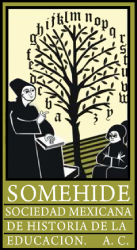Pensamiento pedagógico en la época del Porfiriato: disertaciones de la Escuela Normal Veracruzana
DOI:
https://doi.org/10.29351/amhe.v1i1.265Palabras clave:
Educación objetiva, métodos pedagógicos, escuela modernaResumen
El escenario del México independiente impregnó los términos de la justicia social en los diversos ámbitos de la sociedad. En el ámbito educativo se advertía un alto regazo, pues la tasa de analfabetas (99.38%) evidenciaba el carácter exclusivo y desigual predominante en la época colonial. En esta contribución se narra el carácter histórico-político, socioeconómico y pedagógico de la educación en el Porfiriato, considerando su lucha entre los conservadores y liberales. Los primeros, apoyados por los hacendados y el clero, concebían el proyecto educativo bajo una dinámica tradicional heredada por la Colonia, la cual privilegiaba a la élite. Por lo tanto, la educación para este grupo fue dogmática y católica. Los segundos pensaban en una escuela nueva, con características propuestas por libres pensadores y pedagogos progresistas. Desde esta perspectiva, la escuela debía ser popular, racional y científica. Dichos aspectos se concretaron en las leyes de Reforma, de manera que la obligatoriedad, gratuidad y laicidad fueron elementos que renovaron la política educativa. En este texto se reconoce la puesta en marcha de la corriente educativa más importante de la genealogía del sistema educativo mexicano, con la reforma educativa Liberal en 1881. Como parte de este acontecimiento, la fundación de la Escuela Normal Veracruzana cobra relevancia, su emergencia planteaba poner alto a las ideas retrógradas y apolilladas del clero y la oligarquía. Además, parece interesante el contexto educativo de esta institución como pionera en el país en revolucionar el sistema de enseñanza y ser la cuna de la formación de varias generaciones de maestros. Desde este contexto histórico se analizan las disertaciones de los normalistas, con el objetivo de identificar las temáticas de interés, el corpus pedagógico que se va anclando al campo educativo y la posición que asumen al respecto. Para ello se presenta el análisis de las categorías “teorías de la educación” y “teóricos de la educación”.
Citas
AHBENV [Archivo Histórico Benemérita Escuela Normal Veracruzana] (1888). Disertación de su examen de profesor de Instrucción Primaria Superior [Fondo de Estudiantes, caja 2, legajo 56, exp. 21, fs. 18-40]. Xalapa, Veracruz, México.
AHBENV (1890-1955). Fondo Gobierno, Serie Celebraciones, Certificados y Títulos. Xalapa, Veracruz, México.
AHBENV (1891). Disertación en su examen de profesor de Instrucción Primaria Superior [Fondo Estudiantes, caja 4, legajo 5, exp. 2, fs. 8-14]. Xalapa, Veracruz, México.
AHBENV (1894). Disertación en su examen de profesor de Instrucción Primaria Superior [Fondo de Estudiantes, caja 6, legajo 2, exp. 12, fs.12-17]. Xalapa, Veracruz, México.
AHBENV (1900). Disertación de su examen de profesor de Instrucción Primaria Superior [Fondo de Estudiantes, caja 11, legajo 2, exp. 16, fs.14-18]. Xalapa, Veracruz, México.
AHBENV (1908). Boletín de la enseñanza Primaria (t. VII) [Fondo Estudiantes, año 1904, caja 14, legajo 3, exp. 12]. Xalapa, Veracruz, México.
AHBENV. Certificados y títulos [Fondo Gobierno, Serie Celebraciones, caja 170, libro 1, fs. 1-78]. Xalapa, Veracruz, México.
García, S. (2003). Profesoras normalistas en Veracruz durante el Porfiriato. Ulúa, 1(2), 171-203. Recuperado de: https://cdigital.uv.mx/handle/123456789/8879.
Hermida, Á. J. (1978). La fundación de la Escuela Normal Veracruzana, colección Difusión Cultural, núm. 5. Xalapa: Ediciones Normal Veracruzana.
Martínez, A. (1973). La educación elemental en el Porfiriato. Historia Mexicana, 22(4), 514-552. Recuperado de: https://historiamexicana.colmex.mx/index.php/RHM/article/view/2931/2438.
Venegas, Ma. E. (2004). El renacimiento: un contexto para el surgimiento del concepto pedagógico “formación”. Revista Educación, 28(1), 27-37. Recuperado de: https://www.redalyc.org/articulo.oa?id=4402810.
Descargas
Publicado
Cómo citar
Número
Sección
Licencia
Todos los contenidos del Anuario Mexicano de Historia de la Educación se publican bajo una licencia Creative Commons Atribución No Comercial 4.0 Internacional (CC BY-NC 4.0), que permite compartir (copiar y redistribuir el material en cualquier medio o formato) y adaptar (remezclar, transformar y construir a partir del material) para fines no comerciales, dando los créditos a los autores y a la revista, tal como lo establece la licencia.
La política de acceso abierto y de licencias con “algunos derechos reservados” no niega la propiedad intelectual ni los derechos de los autores respecto a sus artículos, pues ellos son los titulares, en tanto que el Anuario Mexicano de Historia de la Educación no los reserva para sí ni para la institución editora, ya que se apegan a movimientos de acceso abierto como los Principios y Valores del Sistema de Información Científica Redalyc - Red de Revistas Científicas de América Latina y el Caribe, que pugnan por la eliminación de las políticas de embargo para que el autor retenga los derechos de su obra (principio número 8). Así como las políticas de acceso abierto del Directory of Open Access Journals (DOAJ).
Los autores podrán distribuir su propio material en cualquier otro medio o soporte, siempre y cuando sea para fines no comerciales, informando a los editores que el trabajo será publicado nuevamente y dando el crédito correspondiente al Anuario Mexicano de Historia de la Educación.
La publicación en el Anuario Mexicano de Historia de la Educación, por su carácter gratuito, no da derecho a remuneración económica alguna a los autores, ni a los dictaminadores.
Los lectores podrán reproducir (copiar), comunicar, distribuir o hacer obras derivadas de los artículos o colaboraciones publicados en el Anuario Mexicano de Historia de la Educación en los siguientes casos:
- Para fines públicos.
- Sin fines comerciales.
- Que se reconozca la autoría de la obra y se cite su origen con información completa: Apellido/s del autor, inicial/es del nombre/s. (año de publicación). Título del artículo. Nombre de la revista, volumen (número de ejemplar), página inicial del artículo-página final del artículo. DOI o URL (formato sugerido de acuerdo al estilo APA en su versión más reciente).
El cuerpo editorial del Anuario Mexicano de Historia de la Educación asumirá el compromiso de notificar oportunamente a los autores sobre cualquier cambio de ubicación de los artículos en el sitio (cambio de dirección URL o de conexiones para identificar el artículo).
Los autores, al enviar sus trabajos para su posible publicación, deberán tomar en cuenta los puntos anteriores, mismos que se contemplan en el Acuerdo entre autor y el Anuario Mexicano de Historia de la Educación.











